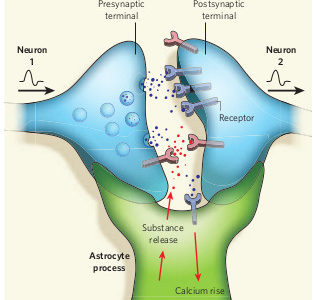Kaerus Bioscience’s BK channel openers for Fragile X syndrome are advancing through Phase 1 trials, offering hope for new treatments with FRAXA’s continued support.
Read moreBK channel
BK Channel Openers: A New Drug for Fragile X Is Ready for Clinical Trials

Discover the promising new BK channel opener, SPG601, now entering clinical trials for Fragile X syndrome. Learn about its potential to restore synaptic function and address core symptoms.
Read moreNovel Modulators of Potassium Channels to Treat Fragile X

With funding from FRAXA over 2015-2017, the Yale University team of Leonard Kaczmarek, PhD showed that the firing patterns of auditory neurons in response to repeated stimulation is severely abnormal in Fragile X mice. Based on these results, they are collaborating with the UK-based company Autifony to develop advanced compounds which may reverse these deficits.
Read moreNewly Discovered Regulatory Pathways in Fragile X

Studies at Yale University and elsewhere are showing that FMRP plays a significant role in the regulation of potassium channels. Looking forward, potassium channel opener drugs could rescue some symptoms of Fragile X in humans.
Read moreSensory Hypersensibility in Fragile X Syndrome and BK Channel Openers

With $366,100 in grants from FRAXA Research Foundation, these investigators at the University of Orleans studied sensory abnormalities in Fragile X mice and test the ability of a class of drugs, BK channel openers, to rescue these abnormalities.
Read moreFRAXADev – Developing BK Channel Openers for Fragile X Syndrome

A number of people have asked us about FRAXADev, a new project starting in France; this is a nonprofit initiative which seeks to develop a new kind of drug for Fragile X. The drugs they are interested in testing in Fragile X clinical trials were developed by Bristol-Myers Squibb many years ago, and are now off patent. This class of drugs opens a potassium channel in the membrane of neurons, which helps to decrease neuronal excitability.
Read moreFragile X Treatment: New Research Directions

In the wake of negative results from several high-profile clinical trials in Fragile X, we find ourselves questioning many of our previous assumptions about the nature of this disorder. After all, understanding the basic pathology of disease is critical to development of new treatments — this is true across the board, in all branches of medicine.
Read morePotassium Channel Modulators to Treat Fragile X

With $246,000 in funding from FRAXA over 2012-2014, the Yale University team of Leonard Kaczmarek, PhD, showed that loss of FMRP leads to an increased Kv3.1 potassium currents and decreased Slack potassium currents in neurons. Both of these changes impair timing of action potentials in auditory neurons (and likely others throughout the brain). The team also found that the firing pattern of neurons in response to repeated stimulation is severely abnormal in Fragile X mice. Based on these results, they are collaborating with the UK-based company Autifony to develop and test advanced compounds which may reverse these deficits.
Read moreTranslation-Independent Functions of FMRP in Excitability, Synaptic Transmission and Plasticity

With a $140,000 grant from FRAXA Research Foundation, Dr. Vitaly Klyachko and team at Washington University explored STP (short-term plasticity) in Fragile X, namely looking at presynaptic calcium dynamics as a major underlying cause of the STP defects.
Read moreWhat Works, and What Doesn’t
At the start, it’s always hard to know what methods will work best for something as complex as the development of disease-modifying treatments for Fragile X. But, we’ve always tried to let the science lead us down the right path. At this point, the results are unequivocal, and they have shaped how we are looking for the Next Great Thing in Fragile X treatments.
Read moreChannelopathies: Altered Ion Channels in Fragile X Syndrome

With a $95,000 grant from FRAXA Research Foundation from 2010-2011, Dr. Daniel Johnston and Dr. Darrin Brager at the University of Texas at Austin investigated alterations in ion channels in Fragile X syndrome. They explored potential therapeutic effects of drugs which open and close these channels. Results published.
Read moreThe Slack Potassium Ion channel is a Therapeutic Target for Fragile X

With $282,000 in funding from FRAXA Research Foundation, Dr. Leonard Kaczmarek and colleagues explored association of Slack channels with the Fragile X protein (FMRP).
Read more
